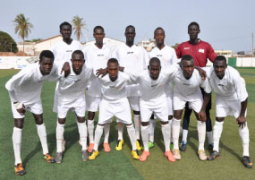Health they say is the well being, physical, mental and the psychological soundness of a person. It has always been the habit of women to be concerned about their children's health. The provision of day-care for the young child has traditionally been seen as primarily of service to the child in facilitating intellectual, cognitive and psychological development. Pre-schools have also often been set up as a network through which to deliver supplementary feeding and health monitoring , as more account is taken of women's voices, allowing them to articulate their needs and take part in shaping community activities, it has become clear that demand for day-care is a need around which they readily mobilise. The 'health' services women provide are not considered in monetary terms and cannot be claimed from the male breadwinning contribution. This strategy has also been a crucial ingredient of many primary health care programmes, and more recently of child survival and development activities. Women are often mobilised as promoters or 'village-based workers' to marshal mothers and children for growth monitoring sessions and 'immunisation days'.
In
Too often, assumptions have been made about the willingness of women to give unpaid service in pursuit of goals that do not naturally mesh with their own and the community's immediate concerns. This approach unwittingly builds upon - and may reinforce their disadvantaged status. Where there is a tangible benefit - for example, the provision of cheap essential drugs or food supplements or co-villagers and the volunteers' efforts are fully supported by local leaders, results can be striking. Countries such as Guinea and Kenya, where health service reform has followed the precepts of the 'Bamako Initiative', devolving responsibility for management and costs onto the community in return for a guarantee of cheap and reliable supplies of essential drugs have set a new example in service support to women's traditional nursing and caring roles.
UNICEF recognises that, in the long run, improvements in women's health depend on the enhancement of their status. Women's capacity to articulate and claim their due depends on knowledge - gained through education and information; it also, depends on their mobilisation for practical action, and attendant gains in organisational capacity and confidence. Women the world over have discovered that unless they promote their cause, gender differentials in their access to resources are not dissolved by male beneficence. While helping women to mobilise for structural change, UNICEF remains dedicated to specific interventions to improve female health at all ages as a social imperative for children and as a matter of girls' and women's rights.




